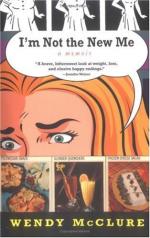Lincoln’s victory in this controversy undoubtedly did much to impress the community, not necessarily that he was a good lawyer, but rather that he was a clever strategist and a fearless enemy. It was not, in fact, as a lawyer that he was prominent in the first years after he came to Springfield. Reelected to the Assembly in 1838, and again in 1840, his real impress on the community was made as a politician. The qualities which he had already shown in public life were only strengthened as he gained experience and self-confidence. He was the terror of the pretentious and insincere, and had a way of exposing their shams by clever tricks which, to voters, were unanswerable arguments. A case in point happened in 1840. It was considered necessary, at that day, by a candidate to prove to the farmers that he was poor and, like themselves, horny-handed. Those politicians who wore good clothes and dined sumptuously were careful to conceal their regard for the elegancies of life from their constituents. One of the Democrats who in this campaign took particular pains to decry the Whigs for their wealth and aristocratic principles was Colonel Dick Taylor, generally known in Illinois as “ruffled-shirt Taylor.” He was a vain and handsome man, who habitually arrayed himself as gorgeously as the fashion allowed. One day when he and Lincoln had met in debate at a countryside gathering, Colonel Dick became particularly bitter in his condemnation of Whig elegance. Lincoln listened for a time, and then, slipping near the speaker, suddenly caught his coat, which was buttoned up close, and tore it open. A mass of ruffled shirt, a gorgeous velvet vest, and a great gold chain from which dangled numerous rings and seals, were uncovered to the crowd. Lincoln needed to make no further reply that day to the charge of being a “rag baron.”
Lincoln loved fair play as he hated shams; and throughout these early years in Springfield are examples of his boldness in insisting that friend and enemy have the chance due them. A most dramatic case of this kind occurred at a political meeting held one evening in the Springfield court-room, which at that date was temporarily in a hall under Stuart and Lincoln’s law office. Directly over the platform was a trap-door. Lincoln frequently would lie by this opening during a meeting, listening to the speeches.




